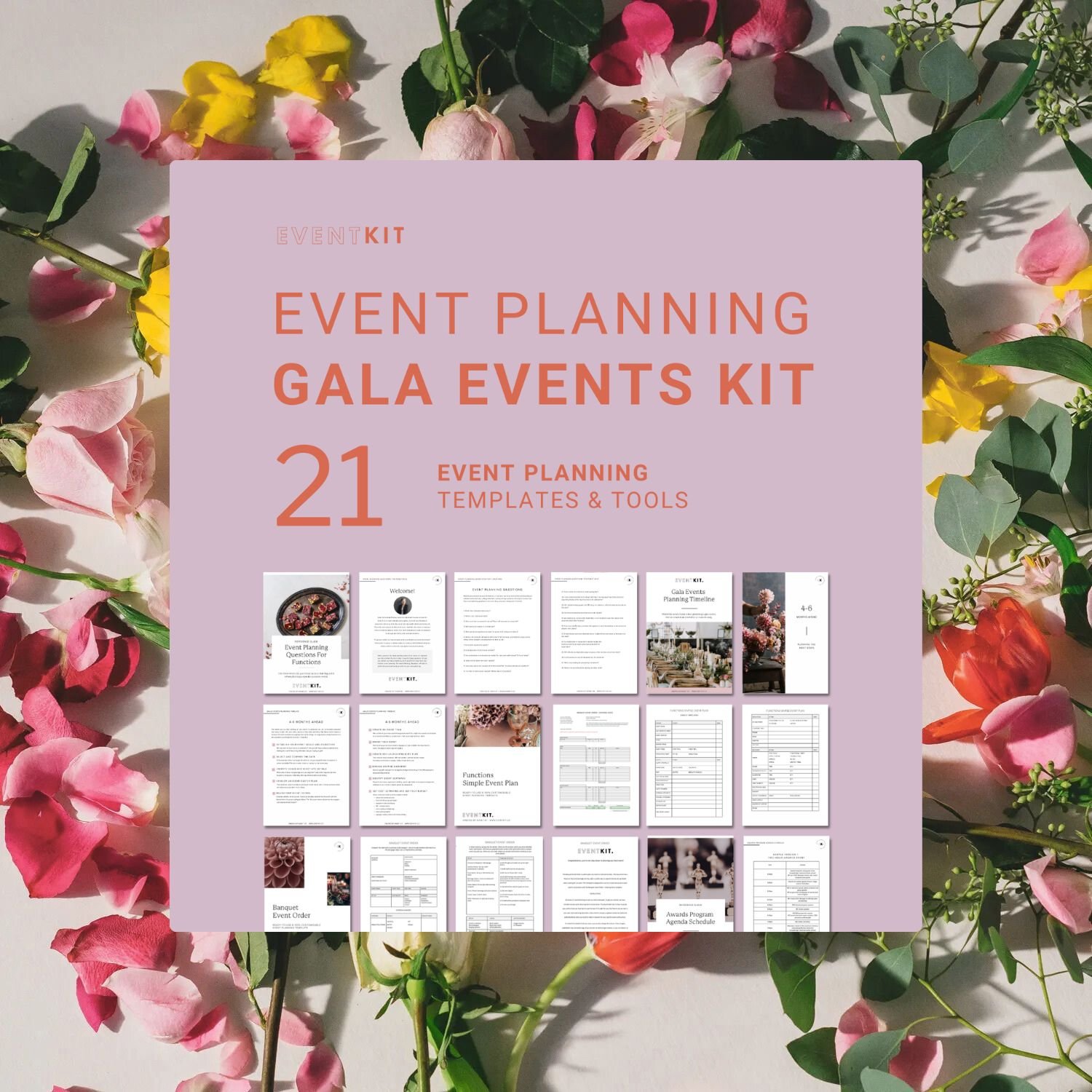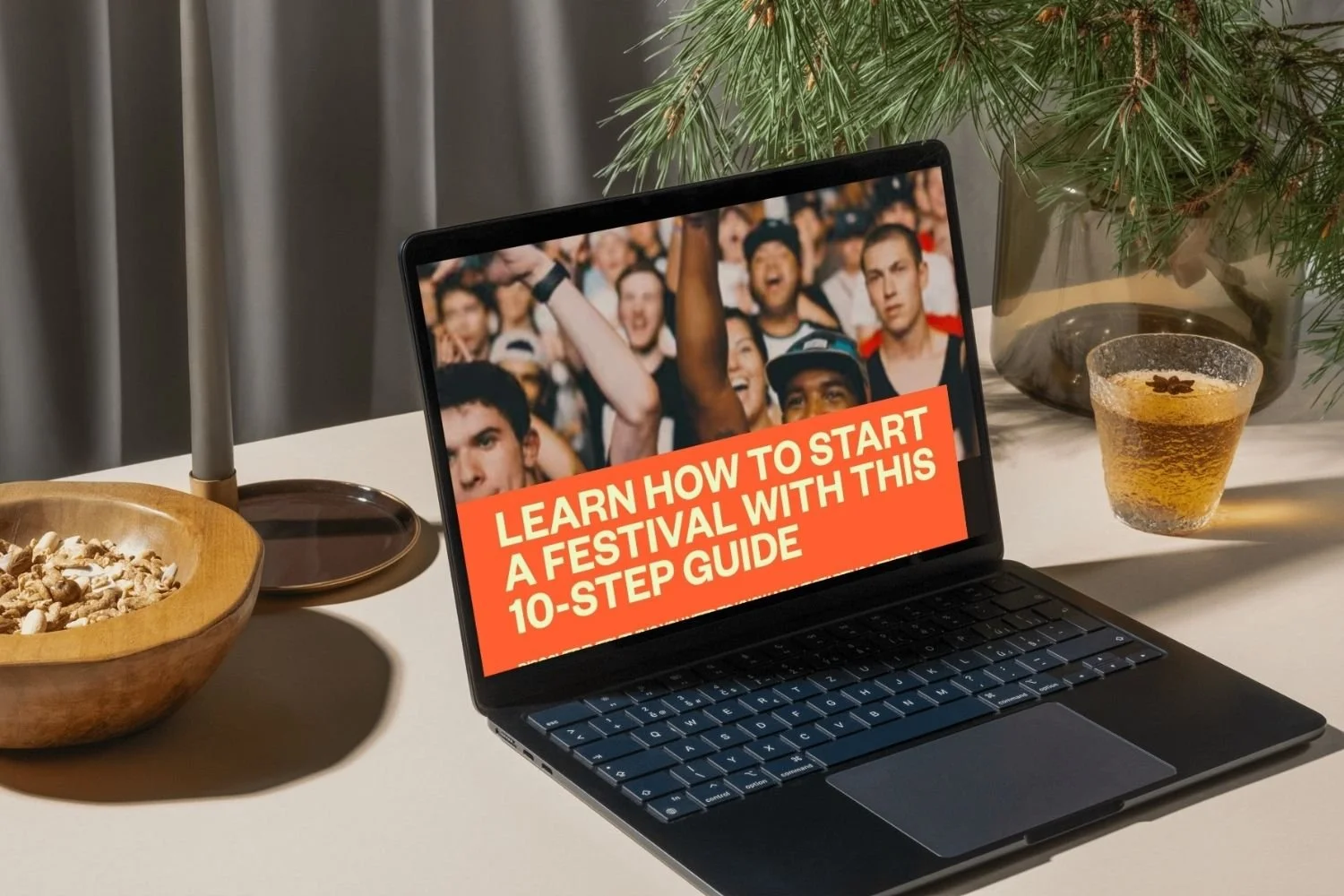Event Strategy: Your Blueprint for Event Success
Planning a successful event isn't just about creating a checklist—it’s about crafting a detailed event strategy that will guide every aspect, from concept to completion.
It’s about knowing where you're going and why.
Pro Tip: The most successful events begin with a clear, well-thought-out event strategy. it sets the direction, aligns your team, and ensures nothing gets overlooked.
What is Event Strategy?
An event strategy is the comprehensive plan that drives every aspect of your event.
From outlining goals to defining tasks, timelines, and resources, it ensures every part of your event contributes to its overall success.
Think of it as the blueprint for your event, much like a builder’s plan for constructing a house. Without a strong blueprint, your event could end up unstructured and chaotic, but with one, you can confidently navigate the complexities of event planning.
For example, a strategy for a community cultural festival could involve securing permits, booking performers, coordinating vendors, and driving promotional efforts. It helps you see the full picture and prevents critical details from falling through the cracks.
Why is Event Strategy Important?
An event strategy provides focus, keeping your event on course by answering the key questions: what, why, when, and how.
It ensures that every detail aligns with the bigger picture, helping you maintain control of timing, budgets, and resources.
When multiple stakeholders are involved, competing priorities can create chaos. But with a solid strategy in place, you’ll stay aligned with your event's vision, ensuring a cohesive approach.
For example, an event strategy for a cultural festival could emphasize promoting local culture, engaging the community, and raising funds. A well-articulated vision links every element, from budgeting to marketing, logistics, and more.
How to Successfully Plan an Event Using Event Strategy
Set the Event Vision
Every event strategy begins with a vision. What do you want to achieve with your event? A corporate conference might aim to educate attendees or generate leads, while a community festival may focus on celebrating local culture and raising funds for projects. Your vision should guide your decisions at every stage of planning.
Consider Your Timeline
Create a structured timeline that includes all tasks, from initial planning to post-event follow-up. For a community festival, this might involve securing permits, booking performers, marketing, and setting up the venue. A clear timeline ensures tasks are completed on time, helping you stay organized.
Consider Your Investment
Budgeting is a key part of any event strategy. A solid event strategy helps you manage your finances wisely, setting limits and ensuring that every dollar spent creates value. Identify how you’ll measure success, such as ROI or attendee engagement.
Profile Your Audience
Understanding your target audience is essential. This will shape everything from the event’s content to the style and marketing strategy. Whether it’s local residents, tourists, or industry professionals, knowing your audience ensures you create an event that appeals directly to them.
Develop Your Concept
Once you have the vision and audience in mind, it’s time to develop your event concept. This is where creativity comes into play—think about themes, styling, and entertainment options. The concept should resonate with the event’s goals, creating an unforgettable experience for your guests.
By starting with a well-thought-out event strategy, you’re setting yourself up for success.
Whether you’re planning a corporate conference or a community festival, having a clear vision, timeline, and budget will help guide every decision. With the right strategy in place, you’ll not only stay organized but also create an event that leaves a lasting impact.
Want more practical event planning tips? Bookmark these extra guides.
How to Build an Event Day Timeline
Leveraging ChatGPT in Event Planning: New Ways to Creativity & Efficiency
Shop Event Kit
Created by an award-winning event pro who’s delivered festivals for 100,000+ attendees. No subscriptions, no locked platforms — just real templates in Word and Excel you can use today.
You Might Also Like
Meet Your Mentor
Hi, I’m Rachella — founder of Event Kit, and an Event Consultant with 25+ years of experience running world-class festivals and public events. I started Event Kit because I knew there had to be a better way. These are the tools and tips I wish I’d had when I was starting out, and now I’m sharing them with you.
EVENT KIT LIBRARY
Guides & Tutorials: Expert Insights & Event Planning Inspiration
Your go-to for practical event planning advice, from beginner basics to smart professional development.




















